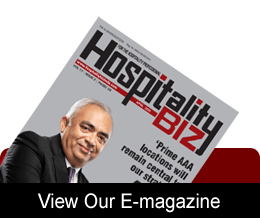By Devipshita Gautam, Founder, Indian Hotel Academy
The hospitality industry, known for its dynamism and global appeal, offers diverse career opportunities, but it is not immune to gender bias. For women entering the hospitality sector, navigating gender-related challenges can be a complex experience. While the industry has made strides toward greater inclusion, gender bias remains a persistent issue, often manifesting in unequal opportunities, wage gaps, or stereotypes about women’s abilities to lead in high-pressure environments.
As women increasingly pursue careers in hospitality, it’s essential to recognize these challenges and adopt strategies to overcome them. This article explores the barriers women may face and offers actionable solutions to help emerging female professionals build thriving careers in the industry.
Recognizing the Challenge of Gender Bias
The first step to overcoming gender bias in any sector, including hospitality, is recognizing that it exists. Gender bias can present itself in various forms, from underrepresentation in leadership roles to more subtle biases like women being expected to take on traditionally “feminine” tasks such as nurturing or caretaking. These biases can affect women’s career trajectories, limiting opportunities for advancement.
One of the more visible forms of gender bias is the wage gap. In many regions, women in hospitality earn significantly less than their male counterparts for doing the same job. Another challenge is the assumption that women are less suited for roles that require leadership in areas like food and beverage management or hotel operations, traditionally dominated by men.
By acknowledging these issues, women entering the industry can better prepare themselves to confront them head-on.
Building Confidence and Self-Efficacy
Confidence is key when tackling gender bias. Studies show that women often undervalue their skills and abilities, which can hinder their career progress. To succeed in hospitality, women need to focus on cultivating a strong sense of self-efficacy. This means believing in one’s ability to succeed in demanding roles and environments, even in the face of bias.
Building confidence can start by seeking out mentorship opportunities or training programs designed to bolster professional skills. Taking advantage of learning opportunities not only helps in mastering the technical aspects of hospitality but also empowers women to assert themselves in male-dominated spaces.
Moreover, women should regularly celebrate their achievements, no matter how small, to reinforce their own sense of competence and ambition. Self-affirmation and recognizing personal growth are essential for overcoming internalized biases and self-doubt.
Finding Allies and Mentors
A robust support network can make all the difference when overcoming gender bias in the workplace. Allies, whether male or female, can play an instrumental role in providing encouragement, offering career advice, and even advocating for women in boardrooms where biases may come into play.
Finding a mentor who has already navigated the challenges of gender bias can provide invaluable insights. Mentorship not only provides guidance but also helps in building a sense of community and belonging in a sector where women might sometimes feel isolated.
In addition to mentors, women should seek out workplace allies—people who are willing to stand up against unfair treatment and advocate for equal opportunities. Allies can be colleagues or leaders who understand the importance of creating inclusive environments where all employees can thrive, regardless of gender.
Advocating for Oneself in the Workplace
Self-advocacy is a critical skill for women in hospitality. Women must be prepared to speak up for themselves, whether it’s negotiating for fair pay, requesting career development opportunities, or addressing instances of bias.
Many women feel uncomfortable advocating for themselves, fearing backlash or being labeled as overly aggressive. However, advocacy doesn’t always mean confrontation; it can be as simple as voicing concerns professionally and assertively. Learning how to navigate workplace politics with grace, while still being firm in one’s rights and expectations, is key.
Women can benefit from understanding their company’s policies on equality and diversity and using them as a framework for their advocacy efforts. Familiarity with these policies helps in making well-informed arguments and knowing when to escalate an issue, ensuring a more equitable work environment.
Cultivating Resilience
Resilience is perhaps one of the most crucial attributes for women entering the hospitality industry. The journey toward gender equality is long, and women may face setbacks or challenges that test their patience and resolve. Cultivating resilience—both mentally and emotionally—allows women to navigate these obstacles without becoming discouraged.
Resilience doesn’t mean accepting unfair treatment; rather, it involves bouncing back from setbacks and remaining focused on long-term career goals. Women should take the time to practice self-care, seek out work-life balance, and build coping mechanisms that help them stay motivated despite the challenges they face.
While gender bias in hospitality remains a significant issue, the industry is slowly evolving toward greater equality. By building confidence, seeking out mentors, advocating for themselves, and fostering resilience, women can better navigate the gender-related challenges they face.
The path toward equality may not be easy, but with the right strategies, emerging female professionals in hospitality can overcome the barriers of gender bias and make lasting, meaningful contributions to the industry. The future holds great potential for change, and it is women’s perseverance and strength that will help pave the way toward a more inclusive and equitable hospitality industry.


